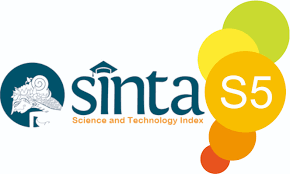The Impact of the Tourism Industry on Local Revenue in Langsa City
 Abstract views: 217
,
Abstract views: 217
,
 pdf downloads: 168
pdf downloads: 168
Abstract
The tourism sector can increase Regional Original Income, but its contribution has not been fully realized. Therefore, the government needs to play an important role in tourism development. This study aims to determine the tourism sector's contribution to Langsa City's Regional Original Income and the government's efforts related to tourism development. The research method employed a qualitative approach with a descriptive research type. The primary data for this study consisted of interview data, while the secondary data included documentation, tax reports, and Regional Original Income of Langsa City for the period 2018 to 2020. The study revealed that the tourism sector's contribution to the Regional Original Income of Langsa City from 2018 to 2020 was minimal. Specifically, Kota Forest and Mangrove Forest tourism contributed 0.0017%, Mutiara Water Park contributed 0.00004%, Virta Tirta Raya contributed 0.00029%, and Royal Waterboom contributed 0.00029%, resulting in a total contribution of 0.00232%. These figures indicate that the tourism sector's contribution to the city's income is very low. The Langsa City government is making efforts to develop tourism in a way that optimizes Regional Original Income through environmental improvement and structuring, sustainable use of natural resources, support for the local economy, and community involvement in maintaining existing tourist attractions in Langsa City.
Downloads
References
“Undang undang Republik Indoesia Nomor 33,” 2004.
G. Pitana, Pengantar Ilmu Pariwisata. Jakarta: Andi, 2009.
Iskandar Budiman, “Strategi Pemerintah Kota Langsa dalam Mengembangkan Objek Wisata Halal, dalam jurnal Samudra Ekonomi dan Bisnis,” J. Samudra Ekon. dan Bisnis, vol. 11, no. 1, 2020.
Bambang sunaryo, Kebijakan Pembangunan Destiasi Pariwisata konsep dan aplikasiya Di Indoesia. Jakarta, 2013.
L. J. Moleong, Metodologi Penelitian Kualitatif. Bandung: Remaja Rosdakary, 2012.
Fauziah, “Wawancara Plt. Kasie Promosi, Pemasaran dan Atraksi Wisata,” 2021.
Copyright (c) 2024 Alfian Muhammad, Nanda Safarida, Murdiah

This work is licensed under a Creative Commons Attribution-ShareAlike 4.0 International License.
Authors who publish with this journal agree to the following terms:
- The author (s) keeps copyright on any article.
- The author grants the journal, right of first publication with the work simultaneously licensed under a Creative Commons Attribution License that allows others to share the work with an acknowledgement of the work’s authorship and initial publication in this journal.
- Authors can enter separate, additional contractual arrangements for the non-exclusive distribution of the journal’s published version of the work (e.g., post it to an institutional repository or publish it in a book), with an acknowledgement of its initial publication in this journal.
- Authors are permitted and encouraged to post their work online (e.g., in institutional repositories or on their website) prior to and during the submission process, as it can lead to productive exchanges, as well as earlier and greater citation of published work.
- We distributed the article, and any associated published material under the Creative Commons Attribution-Share alike 4.0 International License




